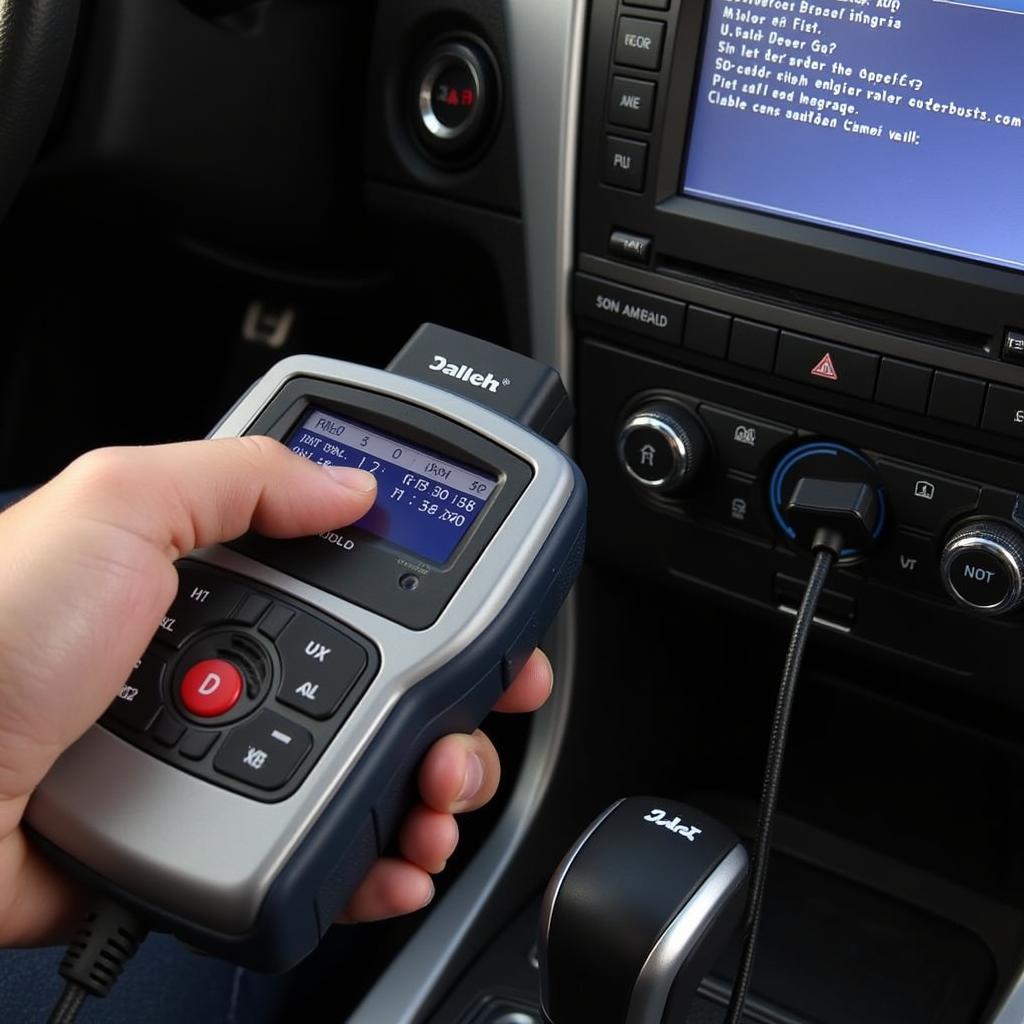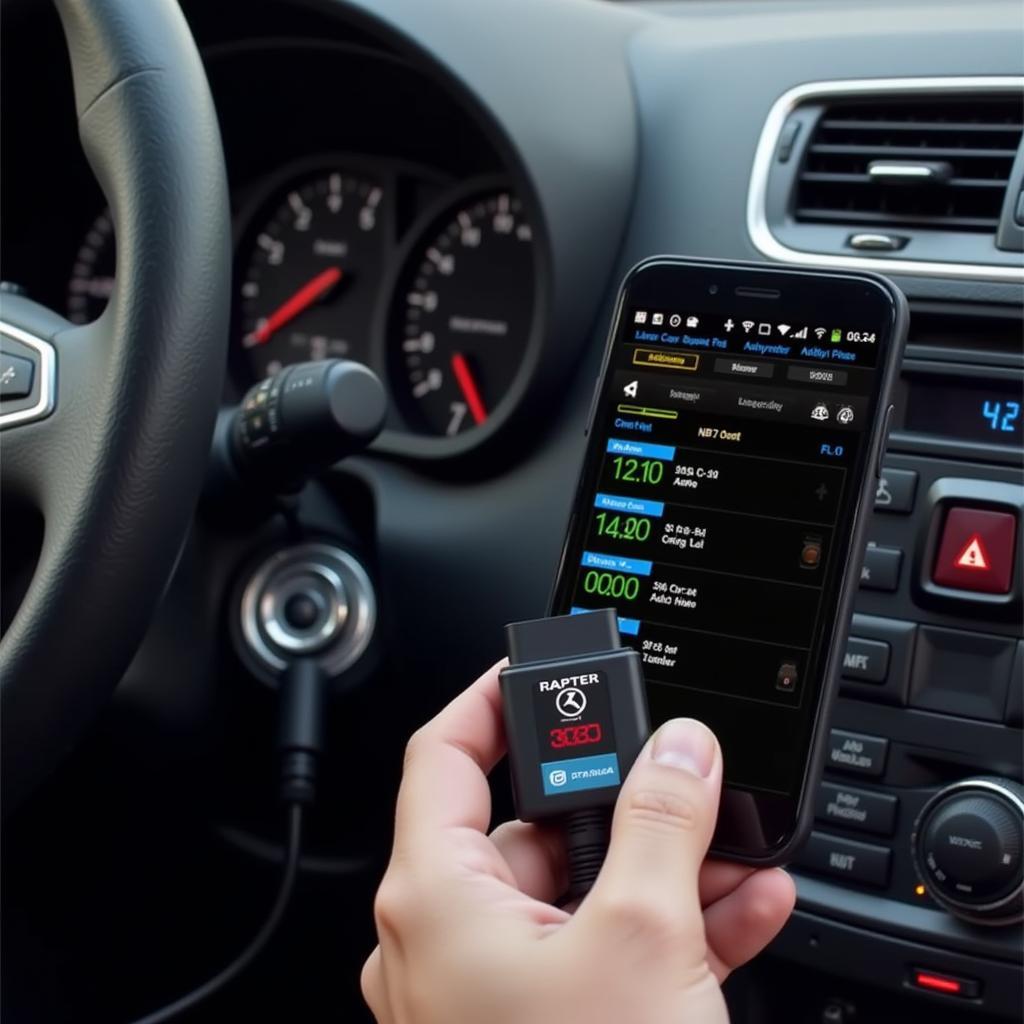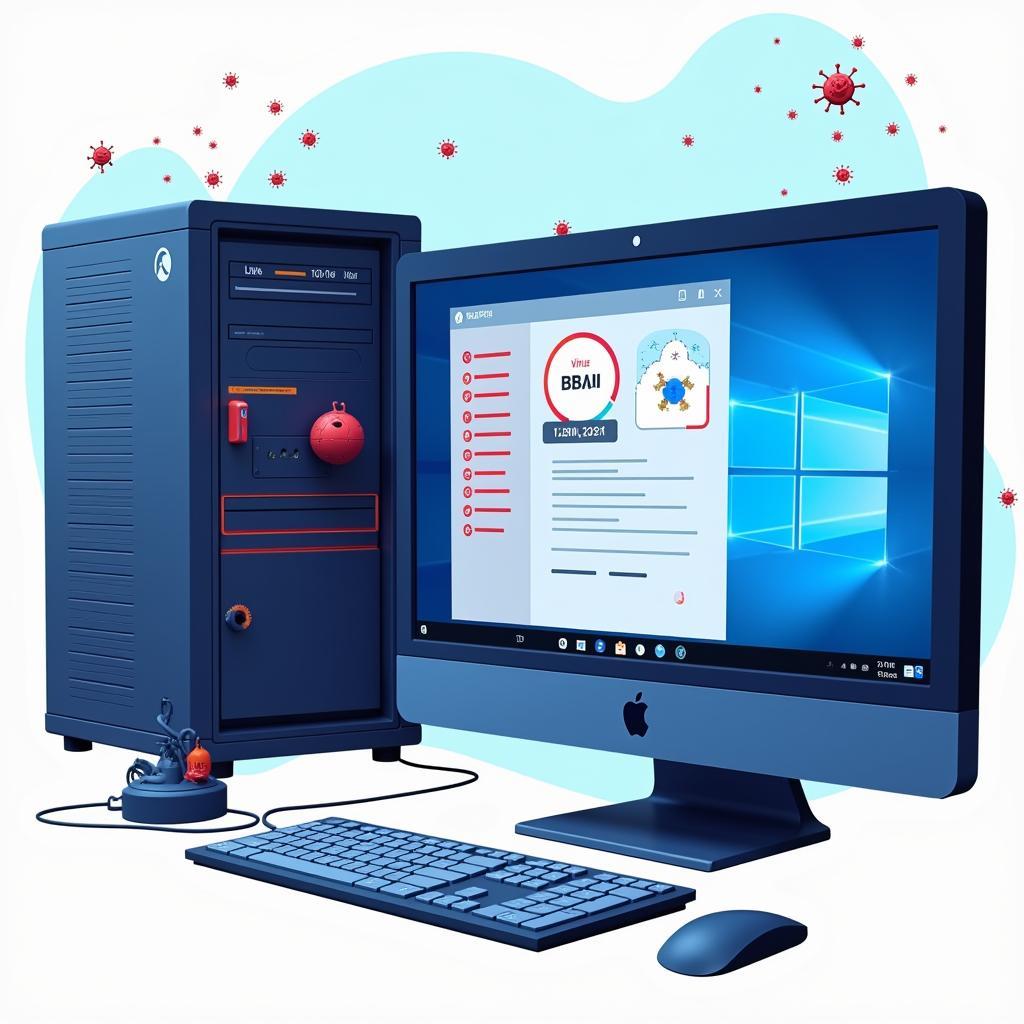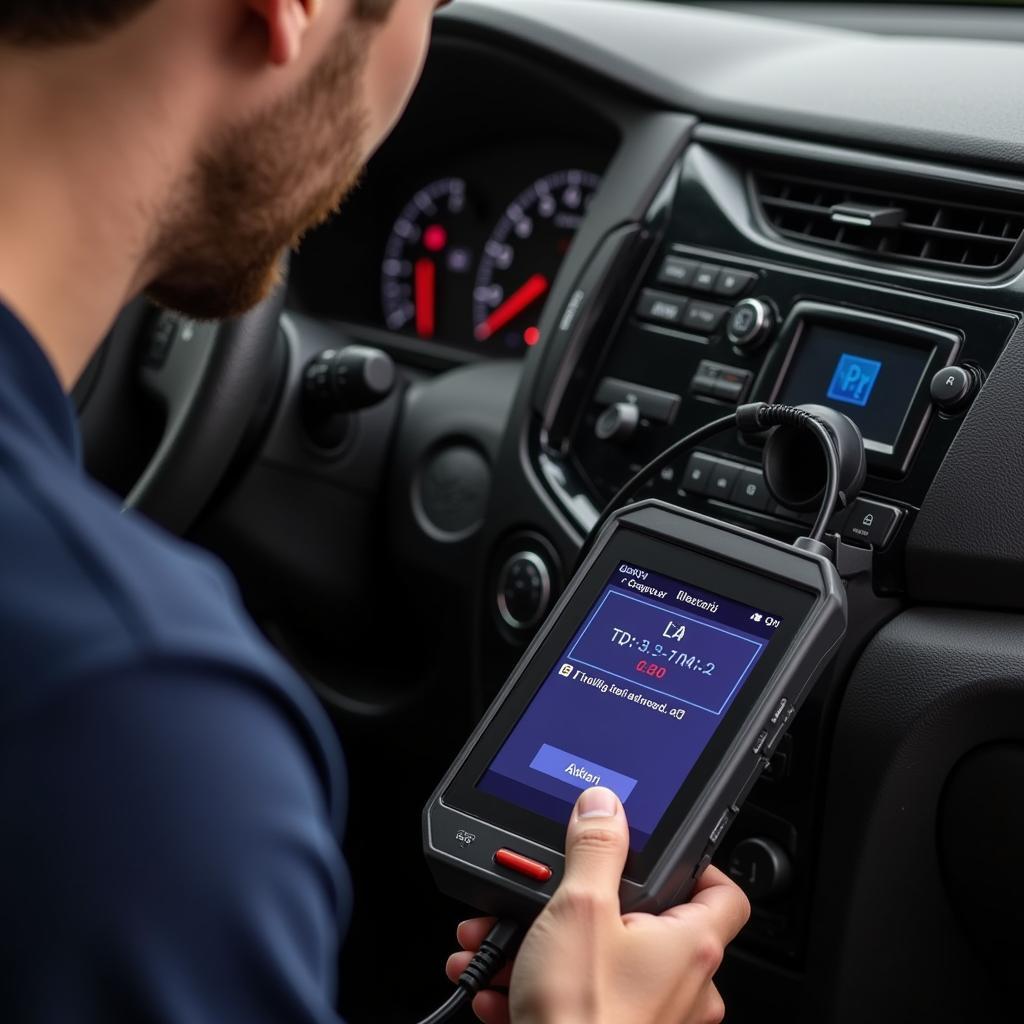In today’s tech-driven world, even car troubles often come with a digital solution. A diagnostic scan tool for all cars, particularly those from 2017 onwards, is no longer a luxury for professional mechanics but an accessible tool for everyday car owners. And the best part? You don’t need to break the bank. Finding a reliable option under $250 is entirely possible.
Why You Need a Diagnostic Scan Tool
Think of a diagnostic scan tool as a window into your car’s brain. It deciphers those cryptic engine codes, turning them into understandable information about your car’s health. Instead of relying on guesswork and potentially expensive trips to the mechanic, you can diagnose issues from the comfort of your garage.
Key Features to Look for in a Budget-Friendly Scan Tool
While professional-grade tools can cost a small fortune, a sub-$250 scan tool can still pack a punch. Here’s what to prioritize:
1. OBD-II Compatibility: All cars manufactured from 1996 onwards come equipped with an OBD-II port. Ensure your chosen tool is compatible with this standard.
2. Code Reading and Clearing: This is the bread and butter of any scan tool. It should read and clear both generic and manufacturer-specific engine codes.
3. Live Data Streaming: Seeing real-time data from your car’s sensors (RPM, temperature, oxygen sensor readings) can be invaluable for diagnosing intermittent issues.
4. User-Friendly Interface: Look for a tool with an intuitive interface, whether it’s a handheld device with a clear display or a Bluetooth adapter that pairs with your smartphone.
5. Additional Features (Bonus): While not essential in this price range, features like ABS and airbag system scanning, smog check readiness, and data logging can be valuable additions.
Navigating the Sea of Options
The market is flooded with diagnostic scan tools, making it tricky to pick the right one. Here’s a breakdown to simplify your search:
1. Basic Code Readers:
These entry-level devices primarily read and clear engine codes. They’re perfect for DIYers who want to understand and address basic car problems.
 Basic OBD-II Code Reader
Basic OBD-II Code Reader
2. Bluetooth Adapters:
These compact devices plug into your car’s OBD-II port and transmit data wirelessly to your smartphone or tablet. Paired with a compatible app, they offer live data, code reading, and even advanced features like performance tracking.
 Bluetooth OBD-II Adapter Connected to Smartphone
Bluetooth OBD-II Adapter Connected to Smartphone
3. Handheld Scan Tools with Advanced Features:
For under $250, you can find handheld scan tools that offer a wider range of features, including ABS and airbag scanning, data logging, and multilingual support. These are ideal for car enthusiasts who want more in-depth diagnostic capabilities.
“Choosing the right scan tool depends on your individual needs and budget,” says John Miller, a seasoned automotive engineer at ScanToolUS. “A basic code reader is perfect for simple diagnostics, while a Bluetooth adapter offers convenience and portability. If you’re looking for more advanced features, consider a handheld scan tool.”
Common Mistakes to Avoid
- Falling for Cheap Knock-offs: Stick with reputable brands and authorized sellers to avoid tools with inaccurate readings or compatibility issues.
- Ignoring Software Updates: Regular software updates are crucial for optimal performance and compatibility with newer car models.
- Overlooking User Reviews: Real-world feedback from other users can provide invaluable insights into a tool’s accuracy, ease of use, and reliability.
Conclusion
A diagnostic scan tool for all cars, especially those 2017 and newer, doesn’t have to cost a fortune. By understanding your needs, researching your options, and prioritizing key features, you can find a reliable tool under $250 that empowers you to take control of your car’s health.
Ready to dive deeper into the world of car diagnostics? Contact the experts at ScanToolUS today at +1 (641) 206-8880 or visit our office at 1615 S Laramie Ave, Cicero, IL 60804, USA. We’re here to help you find the perfect diagnostic solution for your needs.



Pingback: Understanding Scan Tool Live Data: A Comprehensive Guide - Car Scan Tool
Pingback: Finding the Best Scan Tool 2017: A Comprehensive Guide - Car Scan Tool